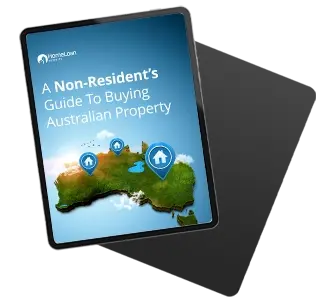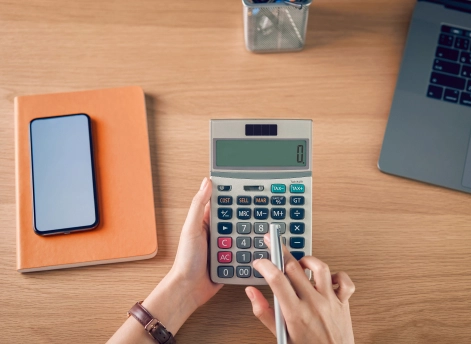Mortgage documents are legal forms that establish the terms and conditions of a home loan agreement between a borrower and a lender. These documents are crucial, especially for those purchasing property in Australia from overseas, as they safeguard the interests of all parties involved. International applicants must have certain key documents, such as identification and supporting papers, witnessed to validate their authenticity.
Which Mortgage Documents Need Witnessing?
Depending on which lender you’re applying for a home loan with, the documents you need witnessed may vary.
This applies to both people who are investing in Australian real estate and Australian expats.
Some documents that will need to be witnessed may include:
- Loan offer: This is the loan contract between you and the bank. Also known as a mortgage contract, some lenders need this to be witnessed whereas others don’t.
- Statutory Declaration: Some lenders will require a witnessed statutory declaration as part of their mortgage documents. The witness must meet particular criteria to be accepted by the bank.
- Certified Identification: Some lenders will require you to mail them a photocopy of your ID that has been signed and certified by an authorised witness as a true and correct copy of the original.
- Mortgage: The mortgage form is the actual document lodged with the government to register the lender’s interest in your property. The acceptable witnesses for this form will depend on which state of Australia the property is in.
In general, other mortgage related documents don’t require a witness.
These include forms to direct how the loan funds are to be paid, opening a bank account with the home loan, or to confirm the details in your application.
Do I need a Justice of the Peace?
What Is Required When Witnessing A Mortgage Form?
Each state has different requirements regarding witnesses for mortgage forms.
This is a state-based form that is lodged with the state government to register the lender’s interest in your property.
Queensland
QLD requires the witness to be a person approved by the registrar. This can include:
- A Notary Public.
- A Justice of the Peace (As of 30th September 2019, any Australian JP is acceptable).
- A commissioner for declarations or for taking affidavits.
- A lawyer.
- A barrister.
- A solicitor.
- A legal practitioner.
- A conveyancer.
New South Wales
In NSW, the mortgage form should be witnessed by an eligible witness, who’s over eighteen years old and has either known you for twelve months or has sighted your identification.
A JP isn’t required.
Australian Capital Territory
The ACT requires the mortgage form to be witnessed by an adult person who isn’t a part of the mortgage agreement.
Victoria
In VIC, mortgages require an eligible witness who’s over eighteen years old and isn’t a part of the loan contract.
Tasmania
TAS requires that an adult person who isn’t a part of the mortgage contract must witness the signature of the mortgagor.
The witness must include their signature, full name, occupation and address.
South Australia
In SA, the witness must be eighteen years or over and must know the mortgagor personally or be satisfied as to the identity of the mortgagor. The witness can’t be a part of the mortgage agreement.
The witness is also required to print their full name, address and business hours telephone number beneath their signature.
Western Australia
WA requires that an adult person witness each signature on the mortgage form. The full name, address and occupation of the witness must also be stated.
Northern Territory
In the NT, people who may witness a mortgage form must be approved by the Registrar-General. This can include:
- A Notary Public.
- A Justice of the Peace.
- A Commissioner for Oaths.
- A lawyer.
- A barrister.
- A solicitor.
- A legal practitioner.
- A conveyancer.
- A member of the police force.
They must not be a part of the mortgage, and after signing the witness must include their names, contact address or number below their signature.
Tips For Witnessing A Mortgage Application From Overseas
There are a number of things you can do to help you get your loan approved from overseas.
- Make no mistakes: If you make a mistake with any of your documents the lender will send your entire loan application back to be redone. This will cause huge delays if you’re overseas.
- Use black or blue pen
- Make sure the witness clearly writes their full name: This includes middle names and their full address. If an initial is used or their writing can’t be read then this won’t be accepted.
- Witnesses must be over the age of 18: They must also be present when you sign the forms and must not be a part of the loan transaction (i.e. two borrowers cannot witness each other’s signatures).
- All signatures are provided and dated: Double check that all required signatures, including authorised witness signatures, have been included on all the relevant documents and dated.
- Fill in all forms correctly: Call your mortgage broker if you’re unsure of how to fill in a form.
- Check everything twice: Do this before you send it back to the bank.
- Include a copy of your building insurance: You may need this when you send the loan documents back but it depends on the lender
Buying A Home in Australia As A Non-Resident
Everything you need to know as a non-resident buying a property in Australia.

Do I Need A Justice Of The Peace?
A Justice of the Peace (JP) is a person who’s authorised to witness and sign statutory declarations and affidavits and to certify copies of original documents.
You may need to have a Justice of the Peace witness your signature on some of the documents.
This will depend on the lender that you use and the state that the property that you are mortgaging is in.
In most cases, you’ll need a JP or JP equivalent.
Do I Need A Justice Of The Peace?
Where Can I Find A JP?
JPs can be found in any country that’s a member of the Commonwealth of Nations (also known as the British Commonwealth). They are typically listed on a Justices of the Peace (JP) Register.
Alternatively, you can go to any Australian Consulate, where you’ll be able to get your mortgage documents witnessed by an authorized person.
Countries that are included in the Commonwealth include Antigua and Barbuda, Australia, Bahamas, Bangladesh, Barbados, Belize, Botswana, Brunei, Cameroon, Canada, Cyprus, Dominica, The Gambia, Ghana, Grenada, Guyana, India, Jamaica, Kenya, Kiribati, Lesotho, Malawi, Malaysia, Maldives, Malta, Mauritius, Mozambique, Namibia, Nauru, New Zealand, Nigeria, Pakistan, Papua New Guinea, Rwanda, Saint Kitts and Nevis, Saint Lucia, Saint Vincent and the Grenadines, Samoa, Seychelles, Sierra Leone, Singapore, Solomon Islands, South Africa, Sri Lanka, Swaziland, Tanzania, Tonga, Trinidad and Tobago, Tuvalu, Uganda, United Kingdom, Vanuatu and Zambia.
Can A Public Notary Be Accepted Instead?
A public notary is a public officer, usually a practicing solicitor or attorney, who is authorized to witness documents, and administer oaths.
They can perform other wide-ranging administrative tasks for both international and national purposes and are available in most countries.
A public notary can be accepted instead of a JP in some cases. You’ll need to contact your lender to confirm their policy concerning public notaries overseas.
Can A Public Notary Be Accepted Instead?
If you wish to purchase Australian real estate from overseas please talk to one of our mortgage brokers. We can answer any questions about witnessing documents overseas and help you get your loan approved.
You can fill in our free assessment form or call us from overseas on +61 2 9194 1700.
